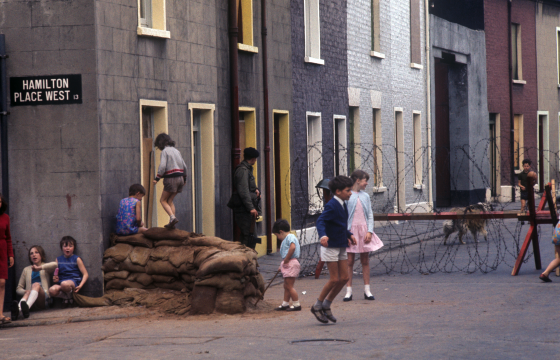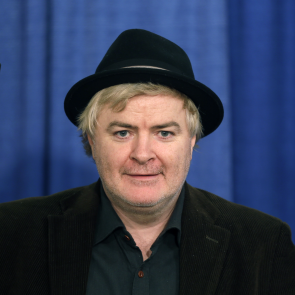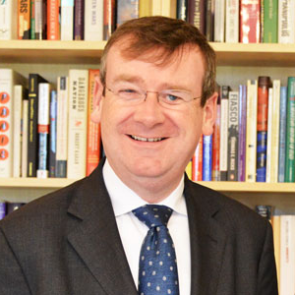The former Ambassador to the Holy See, Francis Campbell, has spoken of how his Catholic teachers in Northern Ireland helped further the cause of peace during the Troubles.
Mr Campbell, a farmer’s son from Newry, recalled how when he was at school, pupils were indoctrinated into believing that they should phone with information to a security hotline if they wanted to help defeat terrorism.
“Did that defeat terrorism? No. What defeated terrorism was teachers in Catholic schools, engaging, taking on, establishing that you do not respond with violence, talking about the sacredness of all human life, even when sometimes that can get uncomfortable,” he said.
Mr Campbell was speaking during a panel discussion in London on Tuesday to commemorate The Tablet’s 175th anniversary. He was replying to a question from a teacher at a school in East London who was concerned the Government’s counter-terrorism strategy, Prevent, could be an obstacle to honest discussions between pupils and teachers about religion.
Prevent was introduced in 2003 and is aimed at stopping people being drawn to violent extremism. Staff in a number of key sectors - including education - are trained in the programme.
 Children play in front of barricades in Belfast during the Troubles
Children play in front of barricades in Belfast during the Troubles
Mr Campbell, who is Vice Chancellor of St Mary’s University, Twickenham said there is a place for Prevent but that teachers had also to act as custodians of the values of their societies and encourage students to express what they feel.
The theme of the panel discussion was the conflict between freedom of speech and respect for faith groups. The other participants were Jack Straw, a former Labour Home and Foreign Secretary, and Adrian Pabst, author of Blue Labour: Forging a New Politics.
The event, at Westminster Cathedral Hall, was chaired by the BBC’s Religious Affairs Correspondent, Caroline Wyatt and was organised jointly by The Tablet and St Mary’s University, Twickenham.
Mr Straw, who was until last May, the MP for Blackburn, which has a high Muslim population, said that a balance between freedom of speech and the right to practise one’s faith unmolested was difficult to achieve. He said that in a stable society people should have the right to be as outspoken as possible.
“We should have the right to say things that are offensive to our opponents but you have to take account of the sensitivities of people who have faith,” said Mr Straw who as Foreign Secretary in 2006, praised British newspapers for not reproducing Danish cartoons that lampooned the Prophet Mohammed.
MORE NEWS, MORE ANALYSIS IN THE TABLET...
Read full analysis and comment on all the latest stories in this week’s print edition of The Tablet. To subscribe click here
However, like the other two panellists, he accepted that there were instances when curbs on free speech were needed. He said he could understand why David Cameron had expressed his determination to counter “non-violent” as well as violent Islamist extremism and expressed concern about the effect extremist preachers could have on young people.
“It’s the slippery slope argument. They are led to subscribe to a series of more and more extreme propositions just short of violence which can then lead to a total alienation from the rest of society regarding anybody who is not of that particular strength of belief in Islam as infidels and then the answer is you have to eliminate them.
“I don’t want to see restrictions on discourse but I do want to see rather fewer terrorists in our midst,” said Mr Straw at Westminster Cathedral Hall on Tuesday.
He pointed out that religious literacy was a particular problem in Islam because – with the exception of Shia Islam – it is not a hierarchical faith and therefore has no proper sources of authority.
KEEP UP TO DATE ON TWITTER AND FACEBOOK...
Follow all the latest news and events from the Catholic world via The Tablet's Twitter feed @the_tablet
Or you can join in the debate at our community page on Facebook




 Loading ...
Loading ...